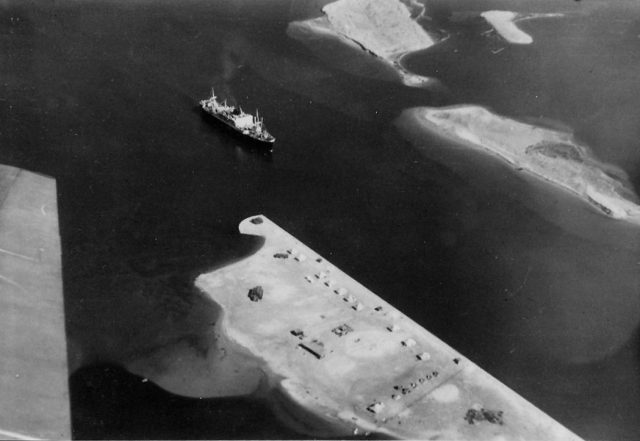
This week marks the 60th anniversary of the most acute phase of the Suez Crisis. Diplomatic historians of mid-20th century conflicts seem agreed that the secretly planned Anglo-French-Israeli invasion of Egypt in early November 1956 signalled the approaching demise of empire for Britain and an immediate loss of her great power status.
The Suez intervention was without a doubt Britain’s most humiliating foreign policy experience; the disastrous outcome of that tripartite invasion heralded a series of other dramatic but unintended consequences, the full impact of which might not be felt for a decade or more.
The supremely self-confident, regionally ambitious and anti-imperialist Egyptian president, Gamal Abdul Nasser, had announced his intention to nationalise the French-built Suez Canal in late July 1956, by which time all British forces stationed along the canal zone had already been withdrawn—at Nasser’s insistence. Although never a British colony in the strict constitutional sense, Britain had dominated Egyptian affairs since 1882, for much of that period sharing influence with the French. The British government was the major shareholder in the company that owned and operated the canal, which Churchill had described as “the great imperial lifeline”.
The secret plan to allow Israel to launch an invasion through the Sinai peninsula, with Britain and France to order a ceasefire and to send troops into the canal zone to enforce peace, was masterminded by the French and Israeli prime ministers, Guy Mollet and David Ben Gurion, and sealed in the Parisian suburb of Sevres. Anthony Eden’s late foray into reckless gunboat diplomacy was partly explained by his unhappy memories of European appeasement while British foreign secretary in the late 1930s and partly by his chronic health problems. A series of disastrous gall bladder operations and heavy reliance on amphetamines would have intensified Eden’s “pathological feelings” about the Egyptian leader.
The Sevres agreement was reached only after a series of international conferences had sought unsuccessfully to persuade Nasser to allow international supervision of the canal. The plan was not reported to the British Cabinet and both Eden and his foreign secretary, Selwyn Lloyd, denied to parliament that any action was under preparation. The British ambassador in Cairo at the time, Sir Humphrey Trevelyan, told the present writer during a later visit to Australia that his embassy had received no prior warning of the invasion.
Although the three invading forces scored early military successes, political failure and public humiliation for Britain was immediate, occasioned by Washington’s hostile and very public reaction. Both President Eisenhower and his secretary of state, John Foster Dulles, had repeatedly warned Eden against armed intervention in Egypt, partly to minimise Cold War animosities, partly to avoid embarrassment to Eisenhower’s current bid for re-election to the White House, and partly because both president and secretary of state were avowedly anti-imperialist. Britain’s punishment from Washington was to be denied a much-needed major loan from the International Monetary Fund unless British and French forces immediately withdrew from Egypt. The invasion ended on 7 November. France did not suffer international humiliation to the same degree as Britain, but the invasion hastened the collapse of the Fourth Republic and the ascendancy of Charles de Gaulle in the new Fifth Republic.
Australia played a controversial supporting role to Britain throughout the dispute, driven largely by its fervently anglophile prime minister, who allowed his heart to rule his head on this issue. Robert Menzies’ mission to Cairo in September 1956, in which he represented canal user states appealing for Nasser to approve international supervision of the canal via the United Nations, was doomed from the start, especially given the sentiments he had already expressed publicly against Nasser. In Cairo, Menzies warned the Egyptian leader that Britain and France might eventually need to resort to force, and when the invasion occurred Australia and New Zealand were the only two countries to vote with the three belligerent states against the General Assembly resolution (997) calling for an immediate ceasefire. There were just six abstentions.
Nasser’s government then severed relations with Australia. The dissenting voice of Australia’s external affairs minister, Richard Casey, in Canberra had carried little weight in Cabinet, and Casey’s own department was further hamstrung by Menzies’ insistence that Anglo-Australian relations remain the exclusive responsibility of the prime minister’s own department, an anomaly not removed until 1970. New Zealand’s position is largely explained by Prime Minister Sidney Holland’s instinctive loyalty to Britain and his ignorance of what came to be called “the Sevres conspiracy”.
The flow-on effects of the Suez adventure were serious and numerous. It consolidated United States leadership of Western interests in the Middle East, especially its patronage of Israel. It distracted world attention from the Soviet Union’s invasion of Hungary following the revolution there in November 1956. Nasser’s triumph inspired the spread of Arab nationalism across North Africa and the Middle East, while continental Europe, encouraged by West Germany’s Chancellor Adenauer, quickened the pace of European unification with establishment of the European Economic Community in 1957.
Britain faced another other blow to its traditional sphere of influence in the Middle East just two years after Suez, when both the king and prime minister of Iraq were assassinated during that unhappy country’s first military coup. Britain had already volunteered a sharp diminution of her influence on Arab-Israeli affairs by quitting its UN-sponsored mandate in Palestine in late 1947, but preparations for the independence of Britain’s African and Southeast Asian colonies were well under way by the time of Suez, and the government of Harold Macmillan, which followed Eden’s resignation, self-consciously avoided the rhetoric and posturings of empire. Britain’s international status did not continue to shrink, but the successful deployment of her power since 1956 has been characterised as ‘essays in exorcising the demons of Suez’.
 Print This Post
Print This Post